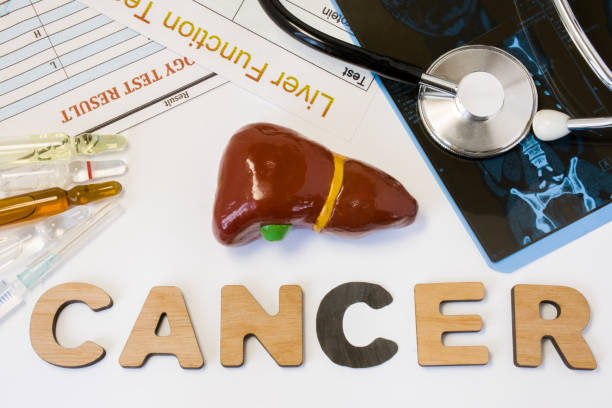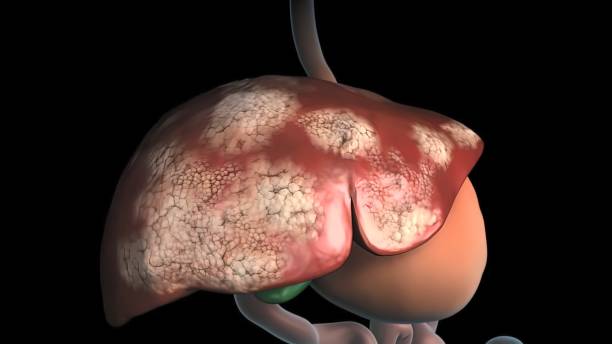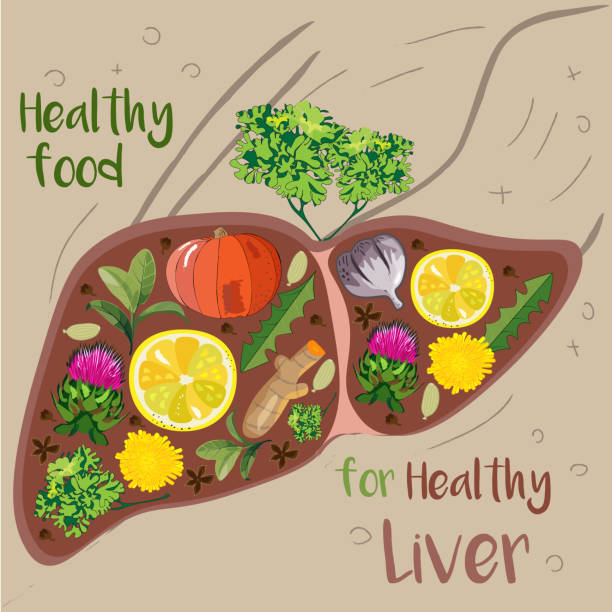Good Morning! my all reader and my lovely friend.How are you all? This article will outline several tips to help you keep your liver healthy and reduce your risk of developing liver cancer. From exercising regularly to avoiding certain foods, you can make simple changes in your life that will help you stay healthy and protect your liver. You will also learn the warning signs of liver cancer and how to detect it in its early stages. With this knowledge, you can take action to care for your liver and protect your health.Liver cancer, also known as hepatocellular carcinoma, is a type of cancer that begins in the cells of the liver. It is a rare but deadly form of cancer that is often hard to detect because it spreads quickly and causes few symptoms in its early stages. According to the American Cancer Society, approximately 26,760 people in the US will be diagnosed with liver cancer in 2019. Liver cancer is responsible for around 2,100 deaths every year. Liver cancer usually occurs in people over age 65. The majority of patients with liver cancer have several risk factors. These include being overweight, having type 2 diabetes, and drinking alcohol excessively.Source

There are several risk factors associated with liver cancer, including age, weight, diet, and genetics. As you age, the risk of developing liver cancer increases due to a decrease in immune function. The majority of patients with liver cancer are over 65 years old. Being overweight or obese also increases the risk of liver cancer. This is because excess weight can cause insulin resistance, fatty liver disease, and a high level of circulating insulin. Chronic metabolic diseases like type 2 diabetes increase the risk of liver cancer two- to four-fold. A diet high in red meat, processed meat, and alcoholic beverages is associated with an increased risk of liver cancer. In addition, a diet low in fiber may increase the risk of liver cancer due to a lack of fiber in the colon. This can lead to a build-up of toxins in the body and a higher risk of developing cancer. Genetics may also increase the risk of liver cancer. Certain genetic mutations (like BRCA1 and BRCA2 mutations) have been found to increase the risk of liver cancer.Source
Warning signs of liver cancer
- Reddening and irritation of the skin: This is usually a result of the spread of the cancer to the lymph nodes.
- Swollen or tender lymph nodes: This can be a sign of the spread of the cancerous cells to the lymph nodes.
- Weight loss: This can be a result of the cancer’s progression to the gastrointestinal tract, causing bleeding.
- Pale stools: This can be a result of the cancer obstructing the flow of bile from the liver. Bile is responsible for helping your body digest fats. If the flow of bile is obstructed, your stools will turn pale.
- Itchy skin: This can result from the spread of the cancer to the blood vessels in the skin.
- Gastrointestinal issues: These can occur if the cancer has spread to the gastrointestinal tract, causing bleeding and the formation of blood clots.
- Unintentional weight loss: This can be a result of the cancer causing damage to the liver, which can affect the body’s ability to break down and process nutrients.Source
There are several lifestyle changes you can make to reduce your risk of developing liver cancer. This includes maintaining a healthy weight, eating a healthy diet, and avoiding alcohol. You can also protect your liver by staying away from harmful toxins and chemicals.
- Maintain a healthy weight: Being overweight or obese can increase your risk of developing liver cancer. Excess weight can cause insulin resistance, which can lead to a buildup of insulin in the blood stream. Insulin is a hormone that has been linked to an increased risk of liver cancer.
- Eat a healthy and balanced diet: A diet high in vegetables, fruits, and whole grains has been associated with a decreased risk of liver cancer. These foods are rich in antioxidants, which help prevent and treat cancer.
- Avoid alcohol: Alcohol has been linked to an increased risk of liver cancer. Alcohol abuse has also been associated with a higher risk of death due to liver cancer.
- Stay away from harmful toxins: Research has found that exposure to harmful chemicals may increase the risk of liver cancer. Avoiding these toxins can help protect your liver and reduce your risk of developing cancer.
- Protect your liver from oxidative damage: Oxidative damage from free radicals has been linked to liver cancer. The best way to prevent oxidative damage is by eating a healthy diet rich in antioxidants.
There are certain foods and drinks you should avoid if you want to prevent liver cancer. This includes foods that are high in saturated fats, trans fats, and sugars. In addition, you should also avoid alcohol if you want to protect your liver from developing cancer.
- Foods high in saturated fats: These fats have been linked to an increased risk of liver cancer. Examples of foods high in saturated fats include red meat, butter, and dairy products such as milk and cheese.
- Foods high in trans fats: Trans fats have been linked to an increased risk of liver cancer. They have also been associated with a higher risk of death due to liver cancer. Trans fats are commonly found in processed foods.
- Sugary foods: Sugary foods have been linked to an increased risk of liver cancer. Sugar intake has also been associated with a higher risk of death due to liver cancer.
- Alcohol: Alcohol has been linked to an increased risk of liver cancer. In addition, alcohol abuse has been associated with a higher risk of death due to liver cancer.
Physical activity is one of the best ways to protect your liver from developing cancer. It can also help lower your risk of developing other chronic diseases. There are several exercises you can do to keep your liver healthy and protect it from cancer. These include yoga, pilates, walking, and swimming.
- Yoga: Yoga is a great way to reduce stress, boost your immune system, and fight oxidative damage. It has been shown to reduce cortisol levels in the blood, which can help prevent liver cancer.
- Pilates: This is another effective exercise that can help prevent liver cancer. It helps strengthen core muscles, improve posture, and protect against back pain.
- Walking: Walking is one of the best exercises you can do to protect your liver from cancer. It can lower your risk of developing metabolic diseases such as type 2 diabetes and help you maintain a healthy weight.
- Swimming: Swimming is another great exercise that can help prevent liver cancer. It is also a low-impact exercise that is gentle on the joints and less strenuous than other forms of exercise.
Certain supplements can help prevent liver cancer and strengthen your immune system. This includes vitamins C, E, beta-carotene, and selenium. Selenium has been shown to reduce the risk of liver cancer in patients with hepatitis B.
- Vitamin C: Vitamin C has been shown to reduce the risk of liver cancer. In addition, it has also been demonstrated to cut the risk of dying from liver cancer in half.
- Vitamin E: Vitamin E has been shown to protect against liver damage and reduce the risk of liver cancer. It has also been linked to a reduced risk of death due to liver cancer.
- Beta-carotene: Beta-carotene can be converted into Vitamin A in the body. It has been linked to a reduced risk of liver cancer.
- Selenium: Selenium has been shown to reduce the risk of liver damage and liver cancer in patients with hepatitis B. It has also been linked to a reduced risk of death due to liver cancer.

If you notice any changes in your health, it’s important to see a doctor right away. You should be on the lookout for any of the following signs and symptoms of liver cancer. They include unintentional weight loss, unintentional weight gain, changes in bowel movements, fatigue, itching, and a lump in your abdomen. During your doctor’s exam, he or she will perform a physical exam and may order blood tests to check for liver enzymes.source
Reference:
https://en.m.wikipedia.org/wiki/Liver_disease
https://www.nhs.uk/conditions/liver-cancer/
https://my.clevelandclinic.org/health/diseases/9418-liver-cancer
https://www.cancer.net/cancer-types/liver-cancer/symptoms-and-signs
https://www.cancer.org/cancer/liver-cancer/causes-risks-prevention/risk-factors.html
https://www.mayoclinic.org/diseases-conditions/liver-cancer/diagnosis-treatment/drc-20353664
